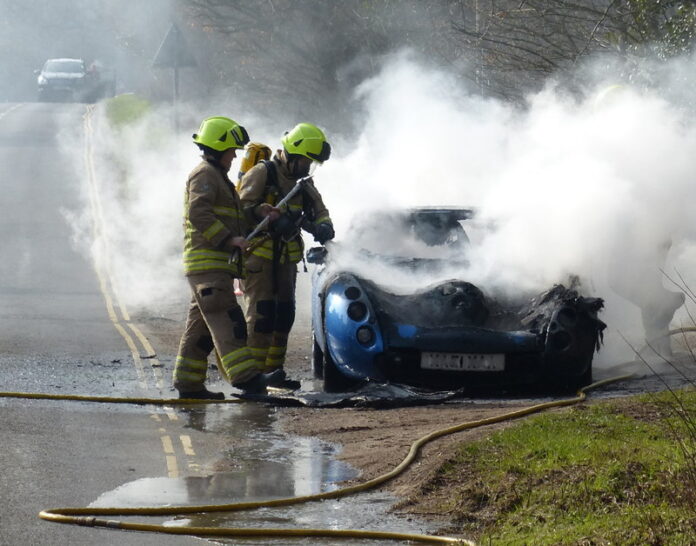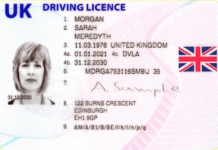
Experiencing a vehicle fire is a daunting ordeal, often striking unexpectedly and escalating rapidly. In the UK, where road safety is paramount, understanding how to react to such emergencies can make a significant difference, potentially saving lives and minimising property damage. Motoring expert, Dominic Watt, from First Vehicle Leasing, outlines practical steps to take if you find yourself in this harrowing situation, alongside insights into the legal implications and potential fines for not adhering to safety protocols.
Immediate Actions
Stay Calm and Signal Your Intentions: If you suspect your vehicle is on fire (signs include smoke, unusual odours, or warning lights), remain calm. Signal and move to the nearest safe location to stop, ideally away from traffic and on level ground.
Turn Off the Engine: Once stopped, turn off the engine immediately. This action helps to cut the fuel supply, potentially preventing the fire from spreading.
Evacuate the Vehicle: Ensure you and all passengers exit the vehicle as swiftly and safely as possible. Avoid opening the bonnet, as oxygen can fuel the flames. Move everyone to a safe distance, ideally at least 100 metres away, and keep clear of traffic.
Call Emergency Services: Dial 999 to report the fire, providing precise details about your location and the situation. The UK emergency services are well-equipped to handle vehicle fires and can dispatch the necessary assistance promptly.
Do Not Attempt to Extinguish the Fire Yourself
While it might be tempting to try and put out the fire, it’s crucial to prioritise safety over property. Vehicle fires can escalate quickly, presenting significant risks from explosions, toxic fumes, and intense heat. Leave firefighting to the professionals.
Legal and Financial Implications
In the UK, vehicle owners are required to maintain their vehicles in a roadworthy condition. Failure to adhere to maintenance standards can lead to legal repercussions, including fines of up to £5000, if neglect is proven to contribute to a fire. Regular vehicle checks and servicing can help prevent such incidents, ensuring that electrical systems, fuel lines, and other potential fire hazards are in good working order.
Insurance Considerations
Should your vehicle catch fire, contact your insurance provider as soon as possible to report the incident. Comprehensive insurance policies typically cover fire damage, but it’s crucial to review your policy details. Documenting the incident thoroughly, including photographs and a clear account of events, will support your insurance claim process.
Dominic Watt, from First Vehicle Leasing says:
A vehicle fire is a serious emergency that demands quick and composed reactions. By following the steps outlined above, you can ensure your safety and that of your passengers, while also navigating the legal and financial aftermath with greater ease. Remember, regular vehicle maintenance is key to preventing such incidents. Stay safe on the roads, and always be prepared for the unexpected.
Help keep news FREE for our readers
Supporting your local community newspaper/online news outlet is crucial now more than ever. If you believe in independent journalism, then consider making a valuable contribution by making a one-time or monthly donation. We operate in rural areas where providing unbiased news can be challenging. Read More About Supporting The West Wales Chronicle





















